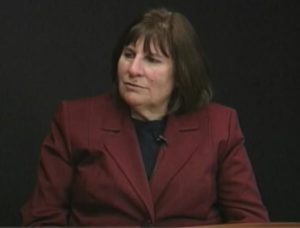 ALBANY, N.Y. — A federal judge, in following instructions from the Second Circuit Court of Appeals upon remand, has ruled that the State of New York can’t take away a Christian adoption agency’s ability to place children in loving homes while its case moves forward in court. The agency had sued after it was threatened with closure for declining to place children with unmarried cohabitating couples or same-sex households.
ALBANY, N.Y. — A federal judge, in following instructions from the Second Circuit Court of Appeals upon remand, has ruled that the State of New York can’t take away a Christian adoption agency’s ability to place children in loving homes while its case moves forward in court. The agency had sued after it was threatened with closure for declining to place children with unmarried cohabitating couples or same-sex households.
“As it stands, New Hope has demonstrated likelihood of success as to its claim that [state law] compels it to speak contrary to its religious beliefs by requiring that New Hope say that placement with unmarried or same sex couples is in the best interests of the child,” wrote Judge Mae D’Agostino in issuing a preliminary injunction against the actions of the New York Office of Children and Family Services (OCFS).
“At present, OCFS has presented New Hope with an ultimatum: make such a statement or close. However, the court finds that the [agency’s current] recusal-and-referral approach is more narrowly tailored to the state’s interests while protecting New Hope’s free speech rights,” she opined.
As previously reported, New Hope Family Services, which was founded in 1965 by a pastor and seeks “to be Christ’s hands extended to offer hope and help to people with pregnancy, parenting, adoption, or post-abortion needs,” was visited in September 2018 by a representative of OFCS for an official review that included meeting with staff and perusing sample records.
Syracuse regional office Director Sara Simon later sent New Hope Interim Director Judy Geyer a letter that, while requesting a few policy adjustments, praised the organization for its work.
“Our office found that your program has a number of strengths in providing adoption services within the community. One of which is the strong emphasis on assisting the birth parents in making an informed decision for their newborn, providing them time to make the decision, along with a supportive and detailed adoptive family selection process,” the correspondence read.
However, just days later, Geyer received a phone call from Suzanne Colligan, who had conducted the review, to advise that a problem had been found with the faith-based organization’s placement policies. Colligan reportedly told Geyer that New Hope must allow placement with unmarried couples and homosexuals, or the adoption agency would be “choosing to close.”
Geyer said that New Hope could in no way violate its religious convictions and that the organization would “never choose to close. You will be forcing us to close.” According to the legal challenge, Colligan advised during the call that “[s]ome Christian ministries have decided to compromise and stay open.”
Geyer soon after received a formal letter from Laura Velez, the deputy commissioner of OCFS division of child welfare and community services.
“It was found that the agency’s policy pertaining to not placing ‘children with those who are living together without the benefit of marriage’ or ‘same sex couples’ violates Title 18 NYCRR § 421.3, and is discriminatory and impermissible,” Velez wrote.
She requested a formal response in regard to revising the policy to eliminate the exclusion, and warned that “should the agency fail to bring the policy into compliance with the regulation, OFCS will be unable to approve continuation of NHFS’ current adoption program and NHFS will be required to submit a close-out plan for the adoption program.”
New Hope Family Services consequently sought an injunction in court, but in May 2019, Judge Mae D’Agnostino — who was nominated to the bench by then-President Barack Obama — ruled that the government had applied its non-discrimination policy fairly and equally, and that New Hope’s claims regarding violations of the First and Fourteenth Amendment could not be substantiated.
She also concluded that OCFS’ non-discrimination policy did not violate New Hope’s religious exercise rights because the organization could continue to make its objections known while simultaneously complying with the State by allowing child placement in same-sex or unwed homes.
New Hope Family Services appealed the ruling to the Second Circuit Court of Appeals, which issued an emergency order in November that allowed the agency to continue with already-existing adoption cases while litigation is underway.
In July, it reversed D’Agostino’s ruling, noting that the case differs from Fulton v. City of Philadelphia, which is currently before the U.S. Supreme Court in that New Hope Family Services is a private entity, is not under contract with the government and receives no funding from it.
It also opined that the plaintiffs presented “plausible claims under the free exercise and free speech clauses of the U.S. Constitution” that “raise a plausible suspicion that OCFS acted with hostility towards New Hope because of [its] religious beliefs.” The three-judge panel found the agency’s argument persuasive in that the imposed regulation would violate its freedom of association.
The court therefore remanded the case back to D’Agostino to consider a preliminary injunction in accordance with its findings.

This time around, D’Agostino concluded that as “other adoption agencies with similar religious beliefs about marriage and family were forced to close by OCFS,” it “may be evidence of hostility towards religious beliefs.”
“While not all of the evidence discussed weighs in favor of a finding of hostility when viewed individually, the totality of the evidence indicates that [the law], as promulgated and enforced by OCFS, is not neutral and appears to be based on some hostility towards New Hope’s religious beliefs,” she wrote.
Additionally, D’Agostino said that while “no one disputes that the state has a compelling interest in maximizing the number of families available to adopt,” she agreed with New Hope that closing the facility by issuing an ultimatum “actually runs contrary to the state’s interest in maximizing the number of families available for adoption.”
“In this instance, [the law] is not narrowly tailored to advance the state’s interest.”
The religious liberties group Alliance Defending Freedom (ADF) applauded the development, remarking in a statement on Monday, “Today’s decision is great news for children waiting to be adopted and for the parents partnering with our client, New Hope Family Services, to provide loving, stable homes. Government officials have no business forcing faith-based providers to choose between speaking messages about marriage that contradict their religious convictions and closing their doors.”
“The need for adoption services in New York, whether public or private, is huge, and New Hope’s faith-guided services do not coerce anyone and do nothing to interfere with other adoption providers who have different beliefs about family and the best interests of children. Today’s ruling signals that the state’s attempt to shutter New Hope violated core rights protected by the First Amendment —the freedom to speak what you believe and the freedom to practice the teachings of your faith.”
Become a Christian News Network Supporter...


